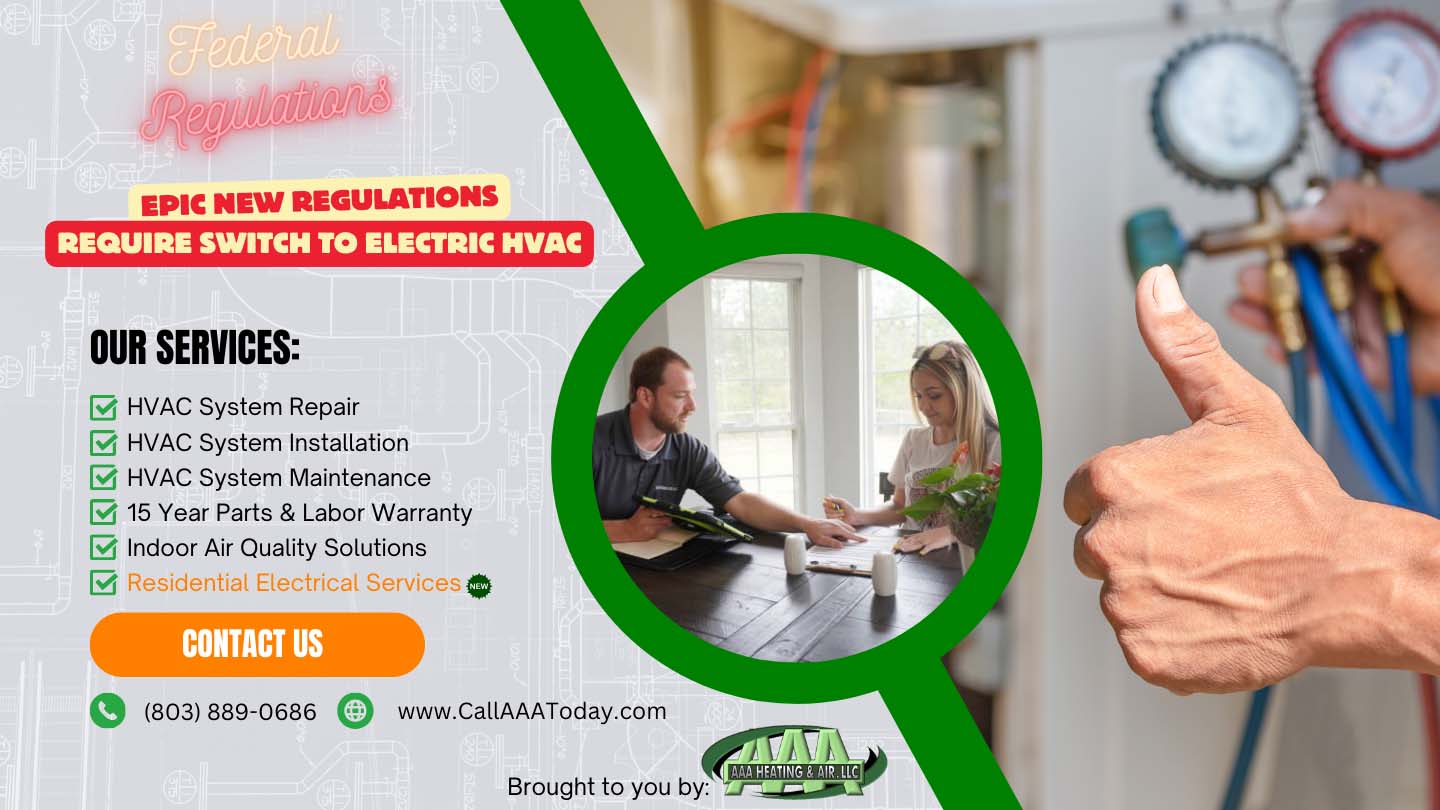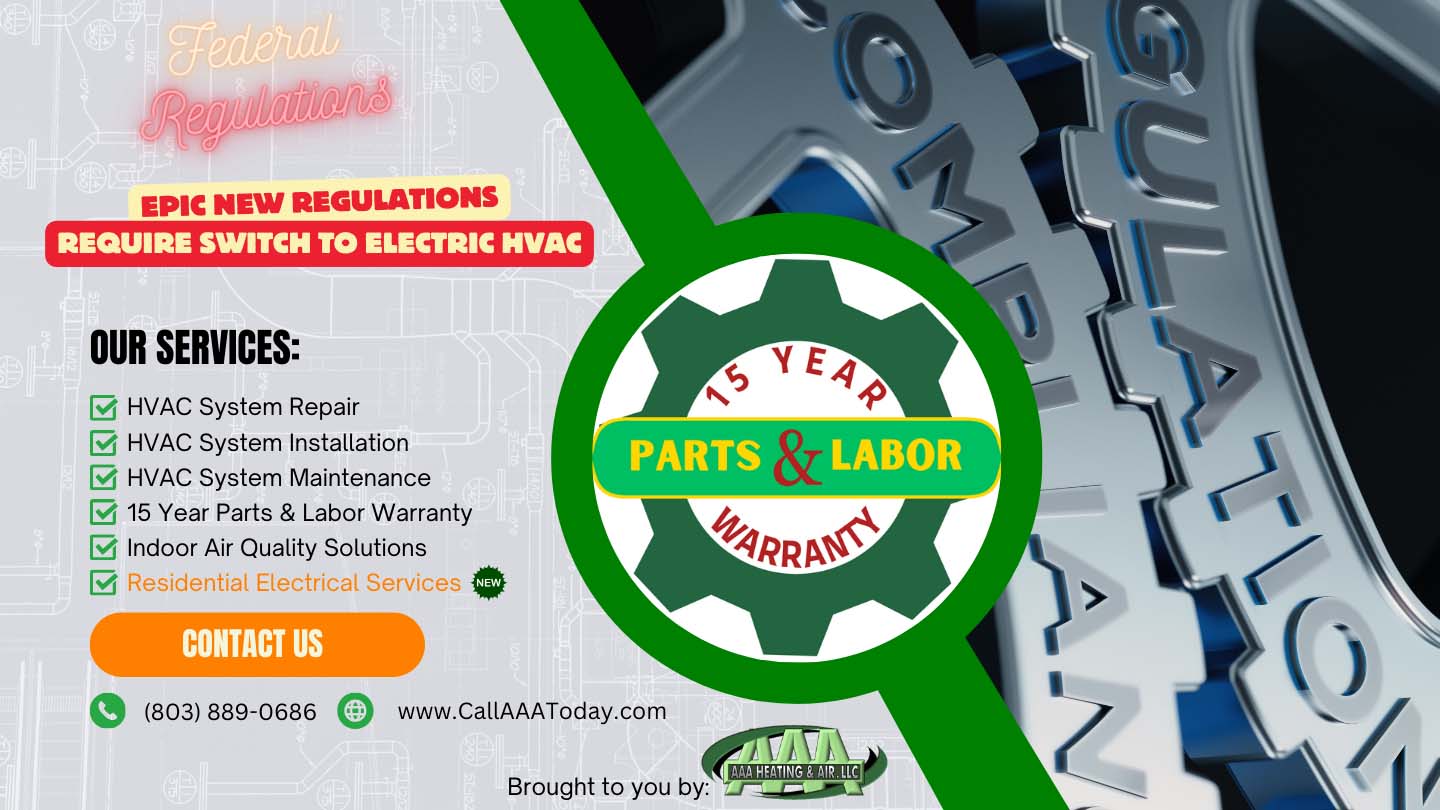The HVAC sector in South Carolina is undergoing a significant transformation, driven by new regulations that mandate a shift towards electric HVAC systems. This change, necessitated by the adoption of A2L refrigerants, underscores the broader movement towards sustainability and safety in home heating and cooling solutions, highlighting why future regulations require electric HVAC.
Understanding the Shift
The transition is primarily due to the introduction of A2L refrigerants, which are more energy-efficient and environmentally friendly but also mildly flammable. This flammability has made it so that regulations require electric HVAC systems, which mitigate the risks associated with gas-based systems. While this isn’t currently required, it will be required by 2030 due to a continuous transition toward more efficient and more flammable refrigerants over time.
Why Regulations Require Electric HVAC?
- Safety: The inherent risk of flammable refrigerants leaking in gas systems is significantly reduced with electric systems, enhancing safety.
- Efficiency and Environmental Impact: Electric systems, particularly those powered by renewable energy, reduce greenhouse gas emissions, aligning with global climate goals.
- Regulatory Compliance: The American Innovation and Manufacturing Act is pushing for this shift. Adopting electric HVAC ensures compliance with future standards, preventing costly retrofits or penalties.
What This Means for Homeowners
- System Upgrades: Homeowners with gas HVAC systems should consider upgrading to electric models to comply with the fact that future regulations require electric HVAC and future-proof their homes.
- Cost Considerations: Although the initial cost might be higher, long-term savings in energy efficiency, maintenance, and potential incentives could balance out the investment.
- Professional Installation: The unique properties of A2L refrigerants necessitate professional installation to ensure safety and efficiency.
The Broader Implications
This move towards electric HVAC is part of a larger trend towards electrification in home utilities, potentially setting a precedent for other sectors in South Carolina. It reflects a commitment to reducing carbon footprints state-wide.
Looking Ahead
As the deadline for these regulatory changes require electric HVAC approaches, education and preparation are crucial. Events like the “Oldest AC Contest” not only engage the community but also educate on the importance of modernizing HVAC systems.
South Carolina’s mandated transition to electric HVAC systems is more than regulatory compliance; it’s a step towards a safer, greener future. By embracing this change, residents ensure reduced environmental impact, lower long-term costs, and improved home comfort. For those needing guidance, consulting with HVAC experts like AAA Heating & Air can provide essential insights during this transformative period.
Call (803) 889-0686 to speak with one of our locally employed Professional Service Representatives or click HERE to use our online Service Request form 24/7.
Announcing: The FIRST Oldest AC Contest Drawing
Mark your calendars for an exciting moment in home comfort history! The first drawing of “The Oldest AC Contest” by AAA Heating & Air is set for Tuesday, October 22nd, with the winner being announced shortly afterward. This isn’t just any contest; it’s a celebration of the enduring air conditioners that have kept South Carolinians cool through the decades. Your old AC unit could be the star of this show, not only earning a place in the annals of cooling technology but also potentially winning you a brand-new, state-of-the-art air conditioning system. Dive into nostalgia, share the story of your trusty old AC, and embrace the chance to step into a future of energy efficiency and comfort. Don’t miss out—register now and see if your air conditioner’s tale leads to a cooler, more efficient tomorrow! Click HERE to learn more.

Written by: Jared M. Sewell

